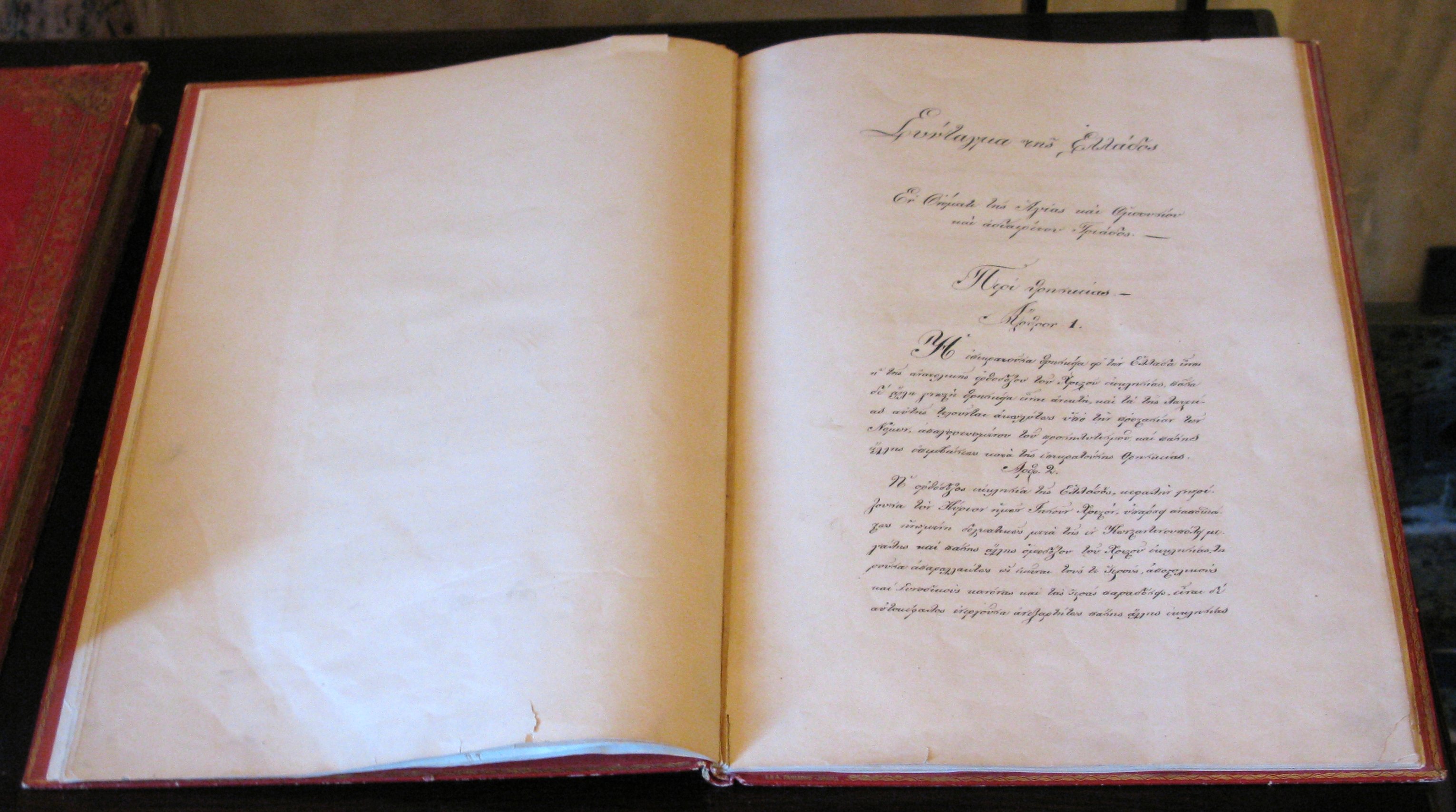Greek Constitution of 1844 on:
[Wikipedia]
[Google]
[Amazon]

 The first constitution of the
The first constitution of the
Scanned original of the 1844 Constitution (in Greek)

 The first constitution of the
The first constitution of the Kingdom of Greece
The Kingdom of Greece ( grc, label= Greek, Βασίλειον τῆς Ἑλλάδος ) was established in 1832 and was the successor state to the First Hellenic Republic. It was internationally recognised by the Treaty of Constantinople, wh ...
was the Greek Constitution of 1844. On 3 September 1843, the military garrison of Athens, with the help of citizens, rebelled and demanded from King Otto the concession of a Constitution.
The Constitution that was proclaimed in March 1844 came from the workings of the "Third of September National Assembly of the Hellenes in Athens" and was a Constitutional Pact, in other words a contract between the monarch and the Nation. This Constitution re-established the constitutional monarchy
A constitutional monarchy, parliamentary monarchy, or democratic monarchy is a form of monarchy in which the monarch exercises their authority in accordance with a constitution and is not alone in decision making. Constitutional monarchies dif ...
and was based on the French Constitution of 1830 and the Belgian Constitution of 1831.
Its main provisions were the following: It established the principle of monarchical sovereignty, as the monarch was the decisive power of the State; the legislative power was to be exercised by the King - who also had the right to ratify the laws - by the Parliament, and by the Senate. The members of the Parliament could be no less than 80 and they were elected for a three-year term by universal suffrage. The senators were appointed for life by the King and their number was set at 27, although that number could increase should the need arise and per the monarch's will, but it could not exceed half the number of the members of Parliament.
The ministers' responsibility for the King's actions is established, who also appoints and removes them. Justice stems from the King and is dispensed in his name by the judges he himself appoints.
Lastly, this Assembly voted the electoral law of 18 March 1844, which was the first European law to provide, in essence, for universal suffrage
Universal suffrage (also called universal franchise, general suffrage, and common suffrage of the common man) gives the right to vote to all adult citizens, regardless of wealth, income, gender, social status, race, ethnicity, or political sta ...
(but only for men).
Despite the fact that Otto accepted the establishment of a Constitutional regime, he was not inclined to enforce it and by breaking both the spirit and the letter of the Constitution he tried to gather as much power as he possibly could. On the night of 10 October 1862 the rising wave of discontent led the people and the military to rebel and to decide Otto's deposition.
References
External links
Scanned original of the 1844 Constitution (in Greek)
Extermal links
* {{DEFAULTSORT:Greek Constitution Of 1844 1844 in Greece Constitution of Greece 1844 in law History of Greece (1832–1862) 1844 documents 1840s in Greek politics